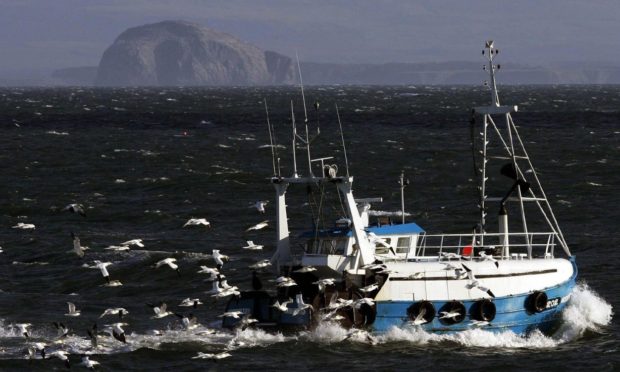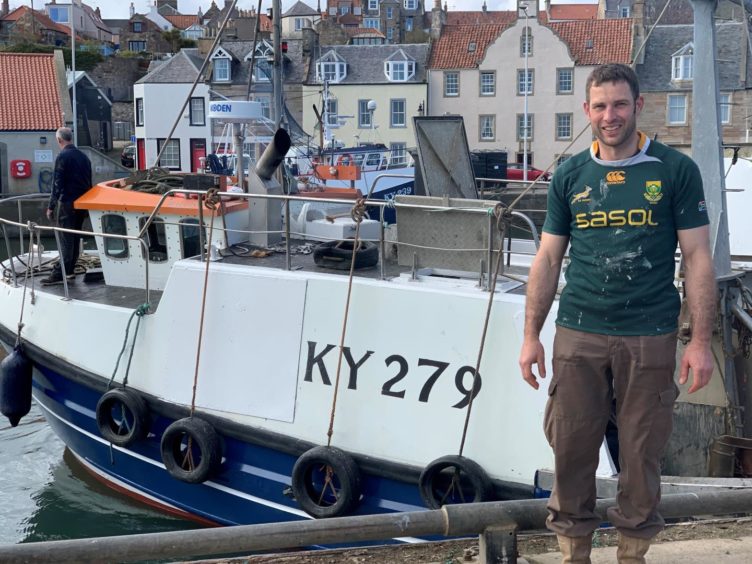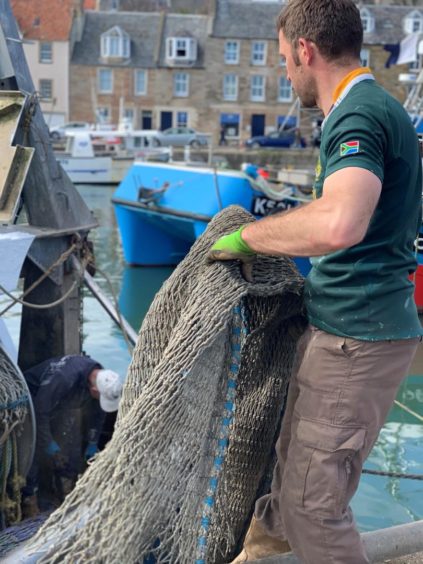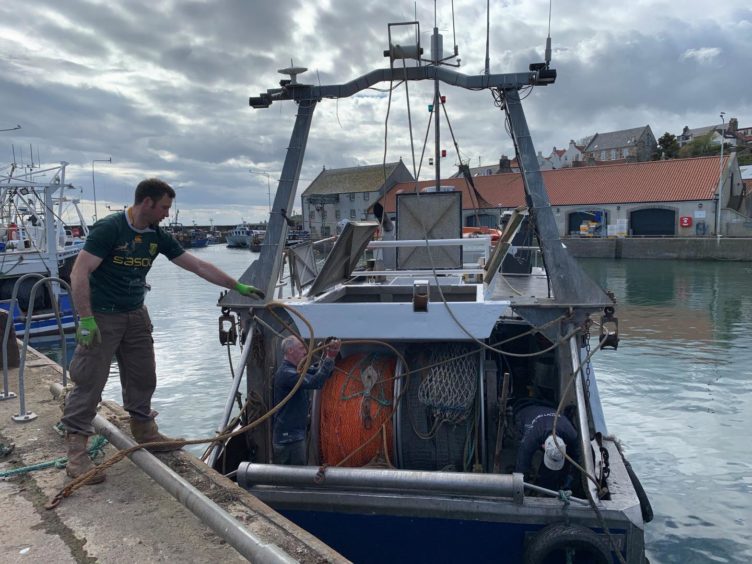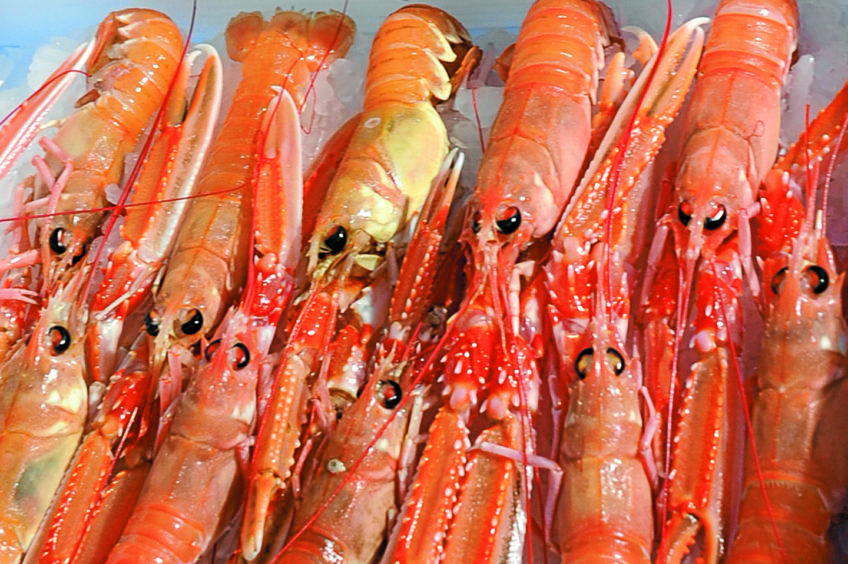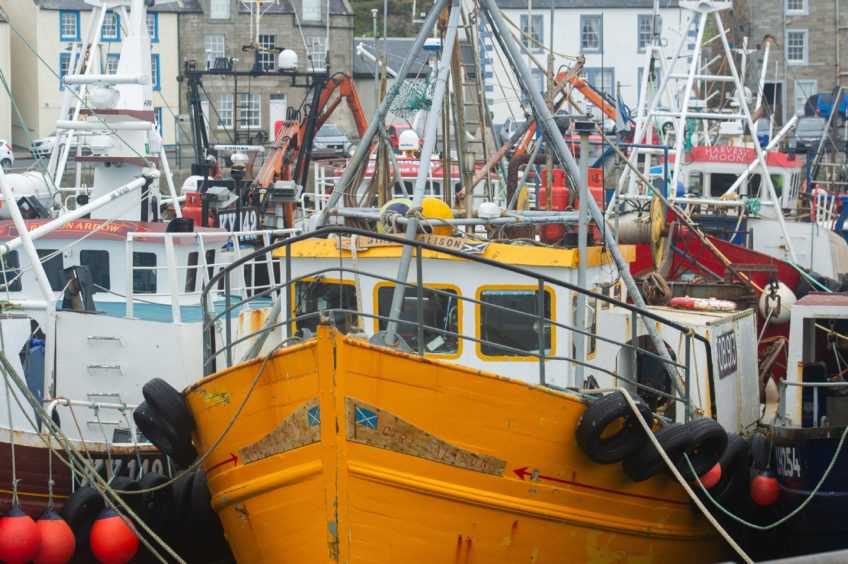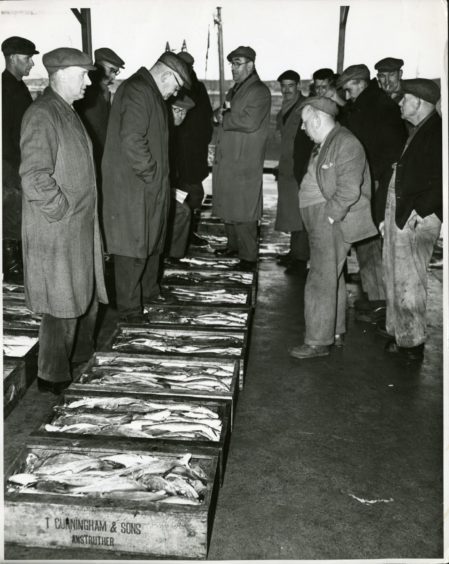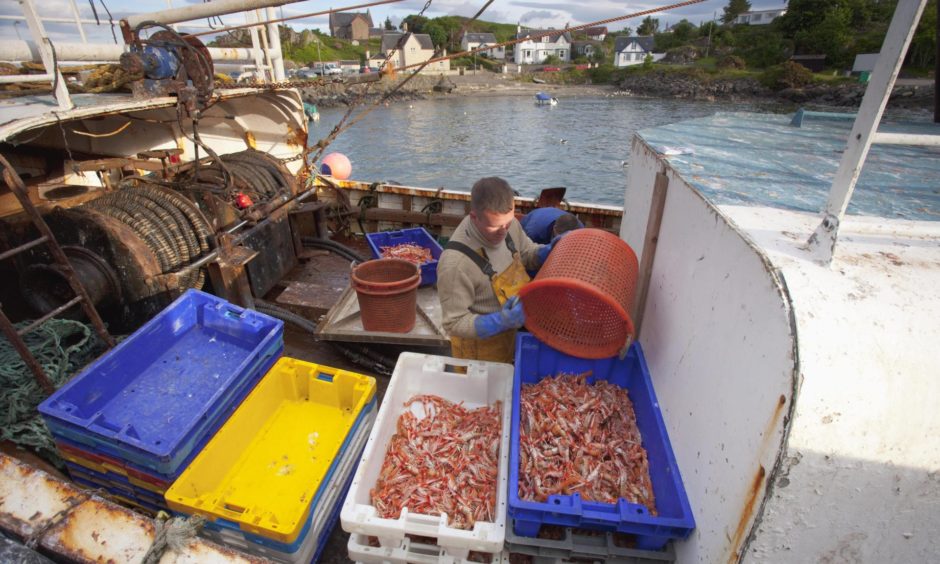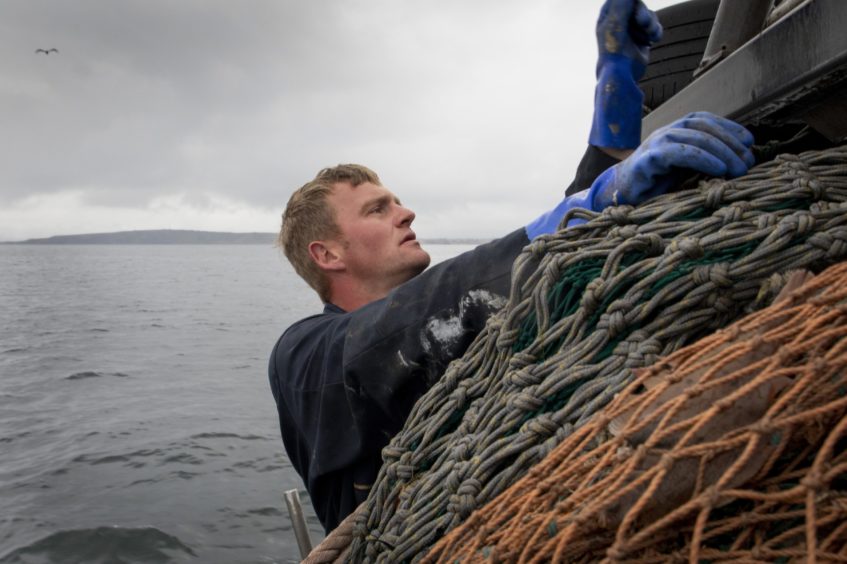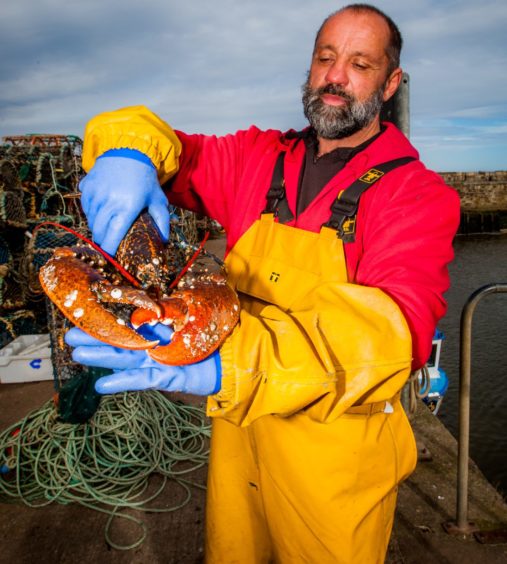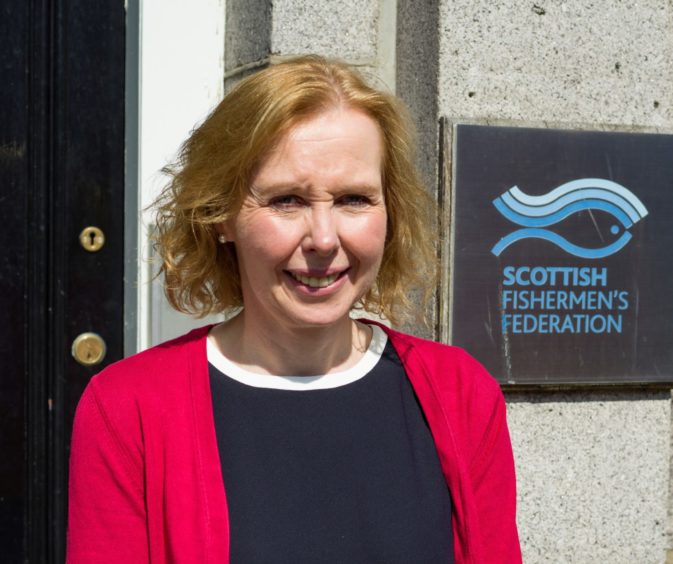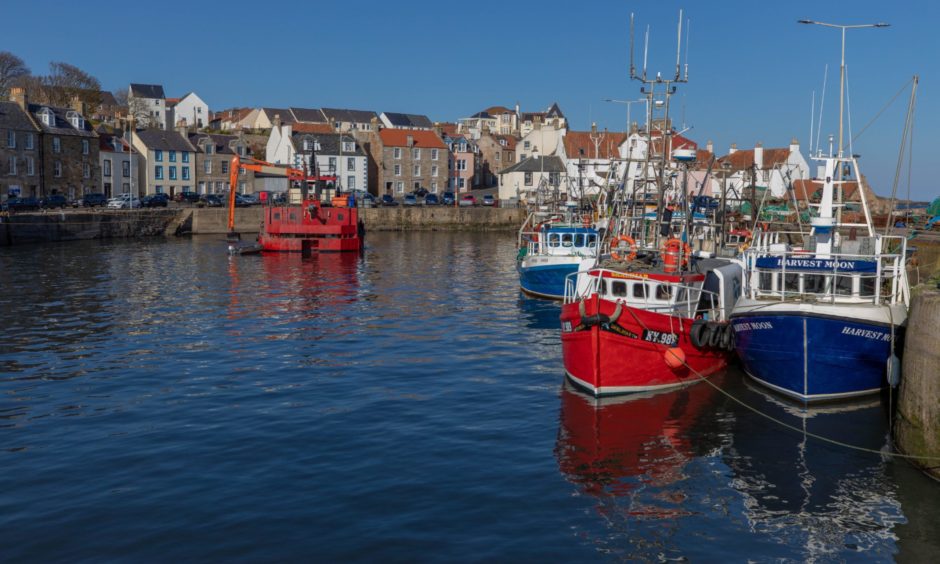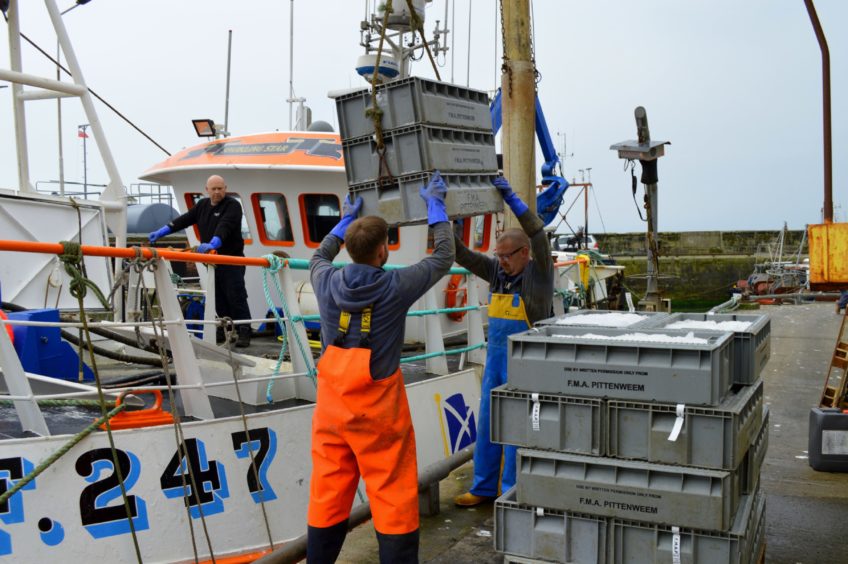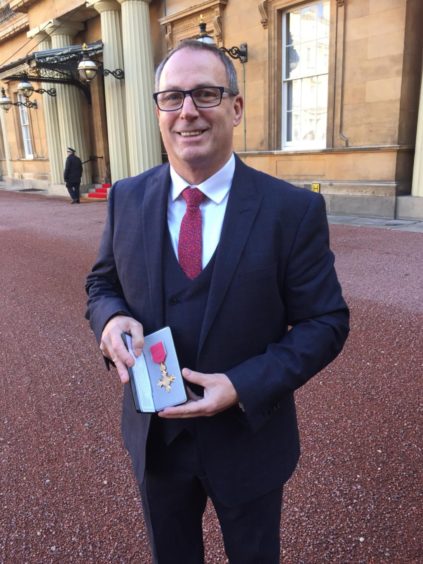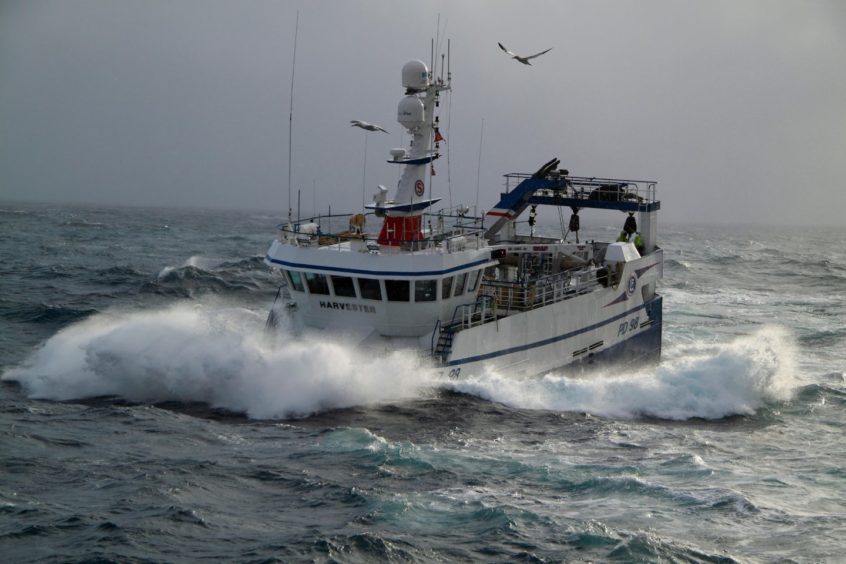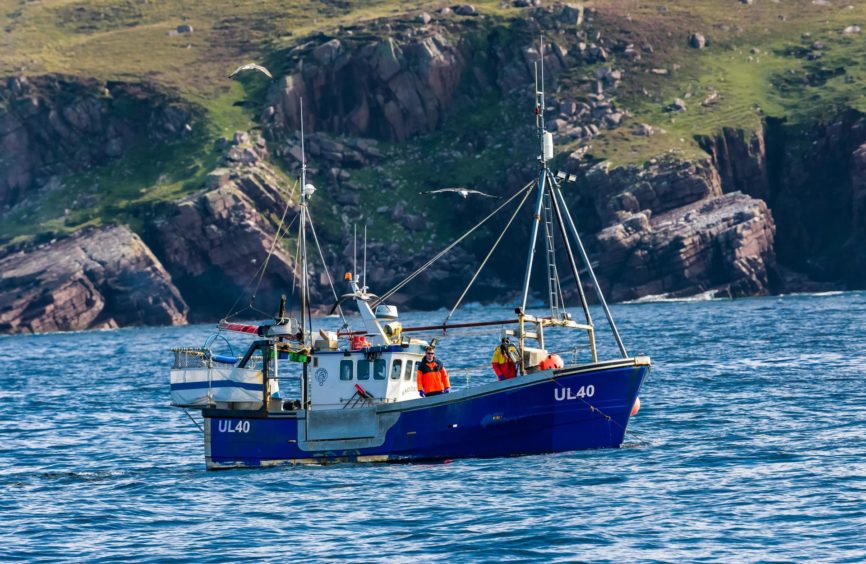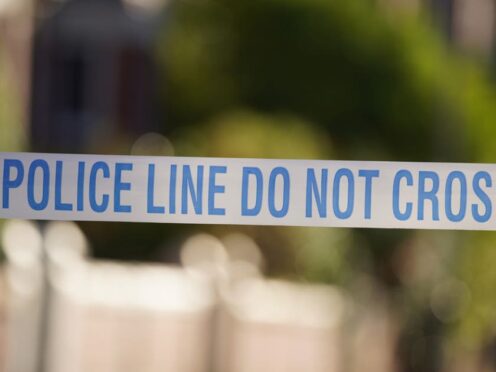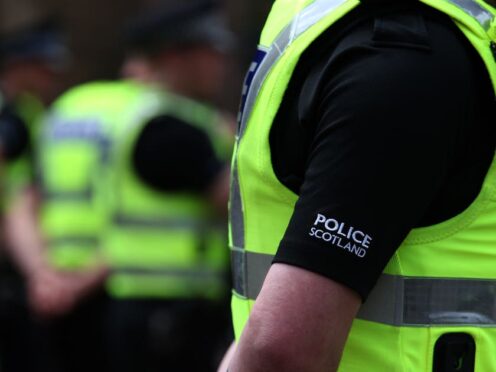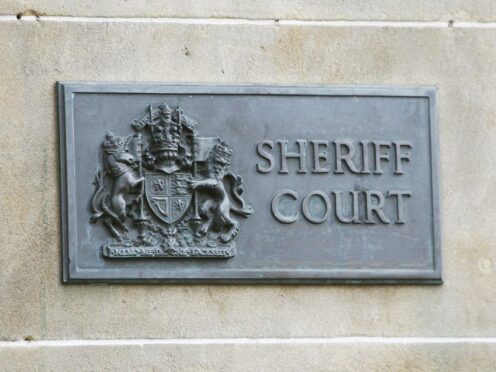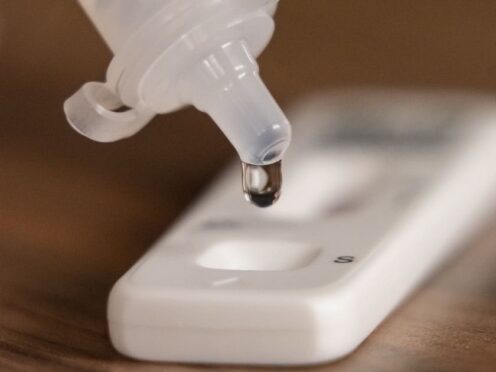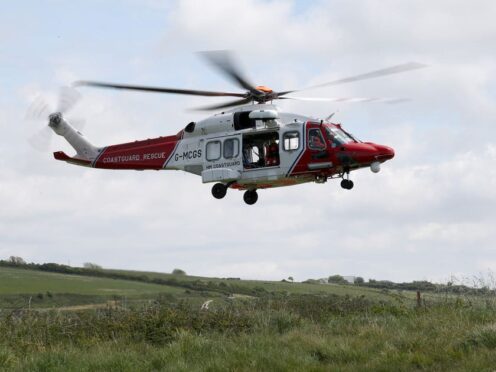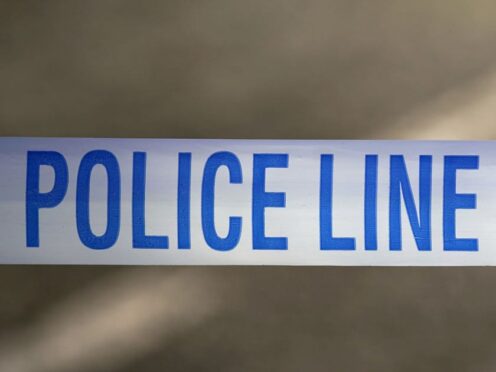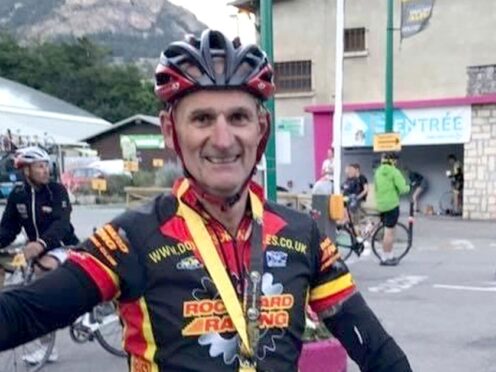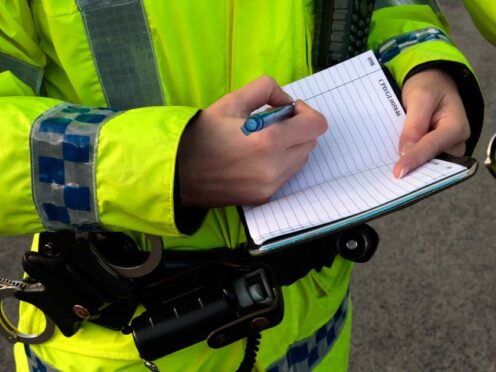Michael Alexander speaks to East Neuk prawn and Scottish fishing industry representatives who are trying to plot a course through the uncharted stormy waters of the Covid pandemic and Brexit.
It was presented as a “sea of opportunity” that would lead to post-Brexit Britain becoming an independent coastal state and a chance to “take back control” of our fishing waters.
But when eighth generation East Neuk fisherman Graham Gourlay reflects on the combined double whammy of Covid-19 and Brexit on his industry, he says that “without a doubt” some prawn fishermen will sell-up unless market conditions dramatically improve soon.
The Gourlay family’s small business Winaway Seafood, based in Pittenweem, made the most of a “brilliant opportunity” last year when their international exports were decimated by Covid-19.
During the first lockdown, when East Neuk prawn boats including the 36-foot The Winaway, faced a three month tie-up due to the collapse of their mainly European markets, Graham and his dad Billy – who has been fishing for 44 years – decided to go back to sea to keep their boat engine and hydraulics in good order.
They initially gave away their fresh langoustine catch locally for free before realising there was a market to sell it.
Graham, who has been working alongside his father on The Winaway for almost two decades, has been taking to the roads of Fife with a free home delivery service on Fridays.
He discovered there was demand for langoustine, caught by The Winaway, and lobsters supplied by Pittenweem creel boat Bold Venture.
Thirty-five fish vans have also been taking fresh catch from them and with the crucial summer fishing season approaching, they hope that the “novelty” won’t wear off and that there will be renewed interest from local restaurants as they re-open.
However, despite these determined efforts to “scrape a year”, Graham, 36, says these continue being incredibly challenging times which have not been helped by the controversial Netflix film Seaspiracy telling the world to stop fishing.
“Before Covid, about 80% of our stuff went to Europe,” he says.
“Since things started back it’s only about 20% of stuff that’s getting through and the buyers are just filling cold stores – taking it in at rock bottom prices, waiting for the market to recover.
“We always set out with this local venture just to get by – thinking things will pick up after a year. But it’s not. It’s going to take years for the market to recover.”
Graham, who didn’t vote for Brexit because most of their catch went to Europe, says that after three record years, the market was already on a “slippery slope”.
He says the market was “only going to go one way with Brexit” and that Covid was the “final nail in the coffin” forcing the market to crash.
He hopes things will “pick up in the next year or two”.
But the reality is, he says, some East Neuk prawn fishermen may decide to sell-up if things don’t improve.
“Christ, aye, without a doubt, some will call it a day,” he says.
“I know if it wasn’t for me being at the fishing my dad would have sold up. Without a doubt. He’s going to be 61 in October. He said he would have sold up last summer if it wasn’t for me.
“It is a different world now to what it was when I was younger.
“You’ll see that down the harbour. Everyday of the week you’d see the old ex-fishermen going down for a walk and watching the boats land.
“You don’t get that any more. You don’t get the kids playing down at the harbour like what we used to do when we were younger. None of that.
“You go down Pittenweem harbour the now and the harbour’s half empty.”
Mixed fortunes
The pandemic, and all the disruption it brought to the local food supply chain, has already cost at least one East Neuk livelihood.
Covid was the final straw that prompted Frenchman Clement Boucherit to stop his Langoustine the Box venture last summer.
Since 2017, he had been providing Fife consumers with fresh shellfish caught by local fishermen.
Others, however, have also tried to find new ways to weather the storm.
Like The Winaway, East Neuk langoustine fisherman Kirk Doig set up Carisma Seafood last year to deliver seafood to customers the same day it’s caught.
He too was left with no demand from the fish markets for his East Neuk catch because of Covid-19.
His venture literally hit the rocks last November when his prawn boat Carisma lost power and sank off the Fife coast. He’s in the process of trying to get things back afloat.
Up the coast, independent St Andrews fisherman Gordon Cation has improvised by setting up a St Andrews Lobsters Facebook page to sell fresh St Andrews caught lobster direct to the local public and commercially.
View of the Scottish Fishermen’s Federation?
Elspeth Macdonald, chief executive of the Scottish Fishermen’s Federation (SFF), says the “very poor settlement on Brexit” by Boris Johnson’s government is continuing to bite and “quite hard to disentangle” from the impact of Covid-19.
While the prawn, scallop and especially the shellfish sector was badly hit last year due to Covid, it’s hoped the situation will improve with the re-opening of UK hospitality.
However, with so much catch exported to continental Europe where there are still significant lockdowns, the “very tough” knock-on effect is undoubtedly still being felt.
While early problems with new largely untested Brexit-related paperwork on both sides of the English Channel has improved, until the economies in key markets start to pick up and recover from the pandemic, she thinks that demand is going to continue to be depressed.
“We’ve heard some concerns,” she says when asked if the SFF is aware of prawn fleet businesses threatening to fold.
“However, at the same time, there’s been work with the prawn sector and the Scottish Government to see what can be done to help the prawn fleet through this difficult time.
“I think there is always a concern that people start to lose heart and feel that they would cut their losses and get out.
“I think we all hope, as the UK improves its vaccination roll out, and as the economy and hospitality returns home and abroad, hopefully in more of a sustained way, that we start to drive the prices back up again and make the whole thing look a lot more viable.
“That might give a sense of optimism. I think what would be of concern is if we end up in a yo-yo with markets opening and re-opening as the pandemic situation waxes and wanes. But of course it’s early days. We’re only just beginning to come out of this second wave.”
Differences of opinion on Brexit
While the St Andrews creel fishermen operate as independents, Pittenweem has been home to up to 40 prawn and creel boats represented by the Fife Fishermen’s Mutual Association (Pittenweem) Ltd (FMA) – the cooperative that sells and handles the produce landed at Pittenweem and, in pre Covid/Brexit times, generated revenues of around £3.5 million per year.
Differences of opinion on Brexit, and the depths of emotion, were summed up in a heartfelt interview with The Courier before Brexit when one Pittenweem-based prawn fisherman called for the UK to be granted exclusive access to its territorial waters and for European boats to be “blown from the water” by the Royal Navy if boundaries were breached.
It was reminiscent of the late 1990s when the Pittenweem-based fishing fleet was no stranger to clashes with Denmark’s industrial sand eel fishing fleet, 25 miles off the Fife coast at the Wee Bankie.
The FMA has said the indiscriminate hoovering up of small haddock had a “big impact” on fish stocks and the marine food chain, and was the “beginning of the downfall” of the East Neuk white fishing fleet, which landed its last catch almost 20 years ago.
Prawns, crabs, scallops, lobsters, clams and razor fish have taken their place with the prawn boats operating out of Pittenweem mainly fishing within 15 miles of the harbour.
Amid wider concerns about sustainability, EU quotas, fuel costs and with evidence that climate change could be pushing haddock and whiting further north into cooler waters, the FMA said previously that memories of those clashes at least partly explained why the majority of East Neuk prawn fishermen “probably” voted to get out of the EU when “given the choice”- despite the majority of their catch being exported to France, Spain and Italy.
Scottish White Fish Producers Association
Mike Park, CEO of the Scottish White Fish Producers Association (SWFPA), thinks it was “pretty much a romanticised myth” that Brexit would help struggling coastal communities like the East Neuk of Fife where white fish landing ceased decades ago because, even if fish quota had been handed to vessels in areas now dominated by prawn boats, “there’s no white fish down there”.
A European politics graduate who spent 30 years as a skipper and vessel owner, he personally voted against Brexit. His personal focus was on the coal and steel community and how the EU provides security for Europe.
However, as CEO of the largest fishing association in Europe, which represents around 220 vessels and 1,400 fishermen who contribute a collective £158 million to Scotland’s economy each year, he understands why the industry was in favour of leaving the EU and the so-called “straitjacket” of the Common Fisheries Policy.
He is in no doubt that fishermen who overwhelmingly voted for Brexit feel betrayed by Boris Johnson’s subsequent trade deal which gives EU fishermen continued access to British waters until 2026.
“I can understand why the fishermen themselves voted for it…because a lot of the rules that were in place applied to us but didn’t apply to Europeans because they were created to prevent our vessels from doing things,” he says.
“To have the right and authority to impose rules in our own waters was a big attraction.
“But that only works if you get the balanced deal you thought you were going to get.
“The sea of opportunity that was promised was missed. We’re at half tide almost now. We’re not even full in.
“We’re in a sad place now and I think it’s going to be inevitable that the Scottish white fish sector, and to some degree maybe the nephrops side of it will require consolidation of the fleet.
“We have significantly less opportunities now than we did when we were a member of Europe.”
Striving for sustainability
As the political voice of SWFPA members, Mike continually speaks to fishermen – hearing their experiences, concerns, and insights – and then relays those messages to policymakers and other relevant industry figures.
The aim is to help facilitate a sustainable, long-term and stable fishing sector which works for the environment, for consumers, and for the fishermen.
In the wake of the Brexit trade deal, however, the 61-year-old who has been SWFPA’s CEO since 2008, and who received the OBE in 2018 for his services to marine conservation, worries about the challenges ahead.
For him, the Brexit deal “fell apart the minute Europe linked trade and fisheries including agriculture”.
Affinity to fishing
Living in Stonehaven with his office in Fraserburgh, Mike’s lifelong affinity to the fishing industry began as a young lad when he went out on creel boats from Stonehaven and worked on his uncle’s line boat during the summer holidays.
After a brief spell in the Merchant Navy, he went into business with the support of Sir Ian Wood – skippering his first 24-metre vessel at the age of 21 and building another new vessel at the former JW Miler & Sons Ltd boat yard in St Monans, Fife, when he was 25.
Today, in a much more regulated white fish industry dominated by trawlers out of North East Scotland, Mike says most of Scotland’s white fish – mainly haddock and cod – stays in the UK.
However, other species such as anglerfish, monkfish, hake and ling – are still dependent on the EU market and are trucked over the English Channel to places like Boulogne-sur-Mer.
As a legacy of Brexit, it now takes longer for the product to get there, and it’s also costing more to get the product there because of paperwork.
A flashpoint at the end of April made headlines when French trawler men angered by delays getting licences to fish inside British waters blocked lorries carrying UK-landed fish with burning barricades.
Other issues include the UK and Norway failing to reach an independent fishing deal, and now tensions with French fishermen over access rights to waters around Jersey.
Despite the difficulties, however, and with Brexit legacy an issue ahead of the May 6 Scottish Parliamentary elections, Mike does not see the Scottish fishing industry being in favour of a return to the EU.
“I think the poster boy element of fishing has come and went to be fair and we are now in there with the other industries like the renewable industry, the oil industry and the farming industry,” he says.
“Obviously fishermen are looking at whether the SNP get a majority or not or whether that then leads to another referendum with the possibility that we go back into Europe.
“The fishermen would see that as a disaster because as far as they are concerned, (PM Ted) Heath sold us out 40/50 years ago and then there’s a double sell out by Boris Johnson at the back end of last year.
“They would see another re-entry to Europe as just another opportunity to be sold down the river.”
